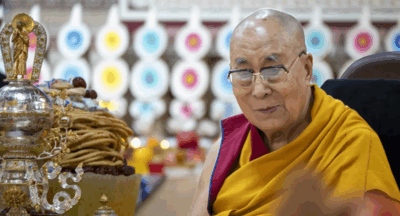By W. T. Whitney Jr.
It’s Bayamo’s turn this year on July 26. The capital city of Granma Province in eastern Cuba hosted Cuba’s Day of National Rebellion. President Miguel Díaz-Canel and other Cuban leaders presided over a day which celebrates young revolutionaries who, 66 years earlier on another July 26, attacked military barracks in Santiago de Cuba and in Bayamo.
Their leader was a young lawyer named Fidel Castro. They wanted to set off a national rebellion aimed at removing dictator Fulgencio Batista from power. In 1952 Batista had staged a military coup to depose the liberal president Carlos Prío Socarrás.
Most of the revolutionaries died, mainly at the hands of their Batista captors. At his trial three months later, Castro delivered a speech titled “History Will Absolve Me” that became a manifesto of principles for the revolution that would follow. Castro identified independence leader José Marti as the revolution’s intellectual author. The year 1953 was the centennial of Marti’s birth.
Festivities and gatherings are taking place in cities and towns throughout the island and indeed in cities throughout the world, wherever supporters of Cuba’s revolution are concentrated. Each year the 15 Cuban provinces compete in a contest of economic and social achievements to be chosen to present the central event of the day. The Political Bureau of Cuba’s Communist party designates the winner.
Ceremonies began in many places, on July 25. In Bayamo the “Ceremony of the Flags” took place in honor of both Carlos Manuel de Céspedes, a nearby resident who in 1868 assumed leadership of Cuba’s First War for Independence, and Pedro Figueredo Cisneros, author of Cuba’s national hymn.
Invited to the July 26 event in Bayamo’s “Plaza of the Homeland” are thousands of guests and many more from the 13 municipalities of Granma Province. Cultural events involving some 300 actors, singers, musicians, and other performers are proceeding throughout the day. In the evening a “political gala” called “From Moncada to the Future” takes place in a remodeled theater.
Prominent among themes highlighted in Bayamo and elsewhere are the “victory of ideas,” and “from Céspedes and Martí to Fidel” and “loyalty to the nation and its revolutionary principles.” Speakers this year, including President Díaz-Canel, are denouncing all forms of U.S. aggression. Their ire is concentrated on Title III of the U.S. Helms Burton Law of 1996, which as of May 2019 is being implemented for the first time. The U.S. purpose behind this is to drive foreign investments away from Cuba.
Actually, the U.S, government and its interventions have long set a perverse tone at Cuba’s National Days of Rebellion. That’s because the day commemorates the beginning of struggle that finally did achieve Cuba’s national liberation – from the United States.
The U.S. government and many Cuban exiles living in the United States prefer May 20 as an independence day. But it doesn’t count because shortly after rebels had defeated the forces of colonial Spain in 1898, the United States rushed in to assert political and economic control of the island.
The façade of a government independent in name only ended on January 1, 1959 when a revolutionary government took power, enabled by the struggle that began on July 26, 1953. That’s another patriotic day in Cuba, but it plays second fiddle to the one celebrated today.
July 26 is about fighting a revolution and much more. As reflected in Fidel Castro’s “History Will Absolve Me,” Cuba’s revolution seeks true national liberation and also social justice. Speakers on July 26 have long evoked the memory of José Marti. Doing so, they testify to the continuity of Cuba’s revolutionary struggle. Presumably they are sending a message to U.S. policy makers.
Every year Cuba solidarity groups in the United States and Puerto Rico visit Cuba as July 26 approaches. Members of the various delegations are invited to attend the day’s festivities, including the principal event at which the Cuban president speaks. Visiting in Cuba now are the Venceremos Brigade, this year defying U.S. regulations with its 50th annual visit to Cuba, and Puerto Rico’s Juan Rius Rivera Brigade.
The New York-based Pastors for Peace delegation, having completed its 30th solidarity visit to Cuba in mid-July, won’t be on hand specifically for the celebrations today. Cuba’s invitations to these groups to attend the celebrations attest to Cuba’s appreciation of faithful support over many years. (IPA Service)


 Imran Is Beating His Own Drum On Trump Meeting
Imran Is Beating His Own Drum On Trump Meeting 